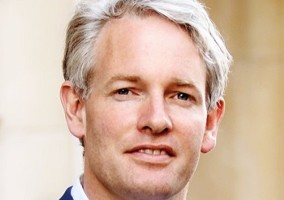A disability charity has made roles redundant due to a lack of funding from public contracts, its chief executive has said.
In the year to March 2023, Aspens Charities had an income of £16.1m and an expenditure of £17m, with most of its funding coming from several contracts with public bodies.
Chief executive Robert Shanahan said the charity overspent on staffing by £460,000 during the year, and left five roles vacant as it could not afford to fill them.
It moved two other staff to vacant posts as their roles were made redundant, he said.
Shanahan said statutory minimum wage rises had increased staff costs by 10% since April and were not being covered by some contracts.
Staffing costs up by 10%
Shanahan said an increase to the national living wage (NLW), which rose to £10.42 per hour in April, increased its staffing costs by £770,000 (around 10%) in a year.
Aspens has stopped paying the real living wage to all its staff, currently £10.90 per hour, which it had committed to last year.
“We had recognised the need to move in this direction, therefore it is disappointing that due to all of the external factors we had to curtail this after a year,” Shanahan said.
The charity has around 480 employees, according to figures published by the Charity Commission.
Shanahan warned that the charity will have to reduce staffing and its services further if funding from local authority commissioners does not rise in line with inflation.
Aspens asked its 28 commissioners last October for a 10.4% uplift on its public contracts to keep up with rising staff costs.
The highest offer it received was an increase of over 10% on one contract, with the lowest being no uplift at all.
On average, it received a 7.4% increase, Shanahan said, which was a lot higher than he expected.
Whether or not the charity would have received an uplift without asking is “anyone’s guess”, said Shanahan.
“We’ve learned that if we don’t ask, quite often, we don’t get,” he said.
This financial year, the charity has reduced its essential support costs by around £210,000, Shanahan said.
The charity overspent last year due to “demands on staffing” and dipped into its reserves, he said.
Since the start of April, the charity has had to subsidise its public contracts by £250,000, Shanahan said.
Commissioning partnerships ‘should be a collaboration’
Asking about the solutions to the issue, Shanahan said local authorities are not being funded adequately by central government.
“Fundamentally the biggest problem is that the local authorities are not being funded adequately by central government,” he said.
“I can be critical of local authorities – but no one’s able to explain to me why I’ve got as high as 10% [increase in funding] from one commissioner and as low as 1.8% from another.”
He said having a more equal partnership with local authorities and social care providers would benefit charities that provide public services.
“I think too often we are dragged into forgetting that it should be a true partnership with each other,” he said. “At the end of the day, what we all want to do is make a difference in people’s lives.”
Related articles











